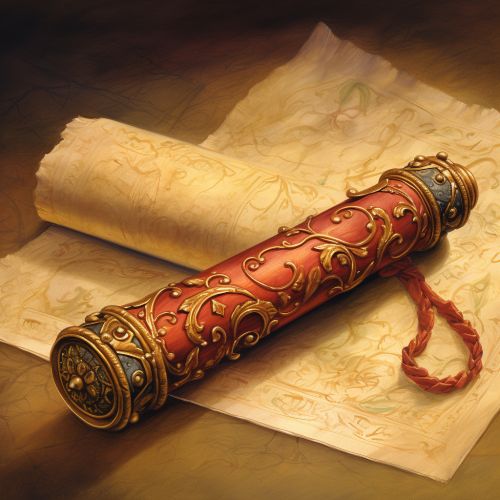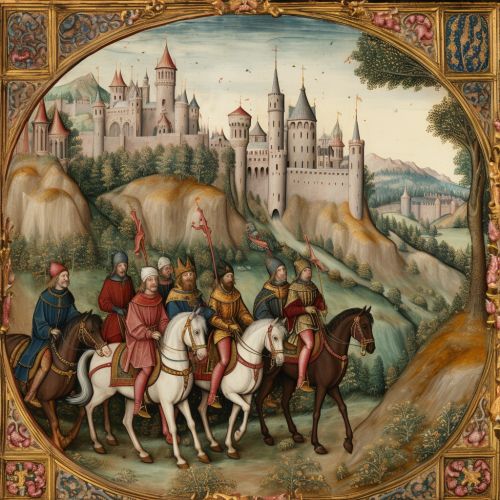Latin literature
Origins and Development
Latin literature, one of the most influential bodies of literature in the world, has its roots in the Roman Republic and Roman Empire. Its earliest known works, written in the Latin language, date back to the 3rd century BC. The literature of this period was heavily influenced by Greek literature, which the Romans admired and often emulated.


The first significant work of Latin literature is generally considered to be the "Carmen Saliare" (Song of the Salii), a ritual chant from the 3rd century BC. The chant, written in an archaic form of Latin known as Old Latin, is fragmentary and difficult to understand due to its archaic language and the loss of context over the centuries.
Golden Age
The Golden Age of Latin literature, spanning the 1st century BC to the 1st century AD, is characterized by the works of several renowned authors. These include Virgil, Horace, Ovid, and Cicero, whose works have had a profound influence on Western literature and culture.
Virgil's epic poem, the Aeneid, is considered one of the greatest works of Latin literature. It tells the story of Aeneas, a Trojan hero and the legendary ancestor of Romulus and Remus, the founders of Rome. The Aeneid is a cornerstone of the Western literary canon and has been a major influence on later epic poetry, including Dante's Divine Comedy.
Silver Age
The Silver Age of Latin literature, spanning the 1st to 2nd centuries AD, is marked by a shift in style and tone. The works of this period are often more elaborate and ornate, reflecting the increasing complexity and decadence of Roman society.
Notable authors of the Silver Age include Seneca the Younger, Juvenal, and Martial. Seneca, a Stoic philosopher, is known for his moral essays and tragedies, while Juvenal and Martial are famous for their satirical and epigrammatic poetry, respectively.
Late Antiquity and Medieval Period
Latin literature continued to evolve during Late Antiquity and the Medieval Period. Christian authors like Augustine of Hippo and Jerome made significant contributions to Latin literature, using the language to express Christian theology and philosophy.


During the Medieval Period, Latin was the language of scholarship and academia. Many scientific, philosophical, and theological works were written in Latin, and the language was used in universities and churches across Europe.
Renaissance and Modern Period
The Renaissance saw a revival of interest in classical Latin literature. Humanist scholars studied and translated ancient texts, and Latin was widely used in the creation of new works of literature, philosophy, and science.
In the modern period, Latin literature has largely become the domain of scholars and classicists. However, it continues to be read and studied for its literary merit and its influence on Western culture and thought.
Influence and Legacy
Latin literature has had a profound influence on Western literature and culture. Its themes, styles, and genres have been emulated and adapted by countless authors, from Dante and Shakespeare to modern writers.
The study of Latin literature also provides valuable insights into Roman culture, society, and thought. It offers a window into the minds of the people who shaped one of the world's greatest civilizations.
